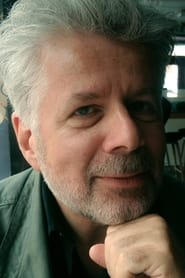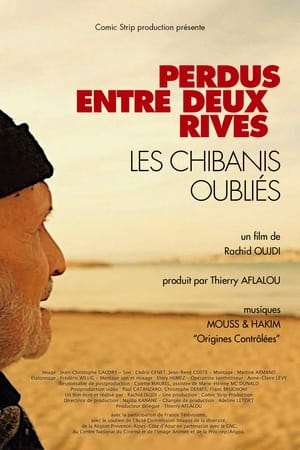
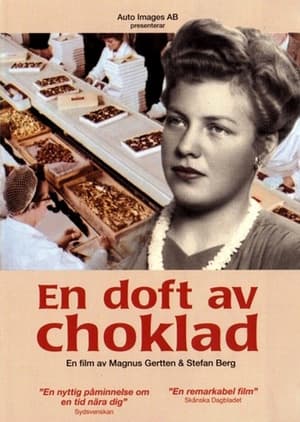
A Scent of Chocolate(2002)
Documentary about Margit Nielsen and her work at the Malmö chocolate factory.

Movie: A Scent of Chocolate
Top 4 Billed Cast
Self
Self
Self

En doft av choklad
HomePage
Overview
Documentary about Margit Nielsen and her work at the Malmö chocolate factory.
Release Date
2002-10-26
Average
0
Rating:
0.0 startsTagline
Genres
Languages:
svenskaKeywords
Similar Movies
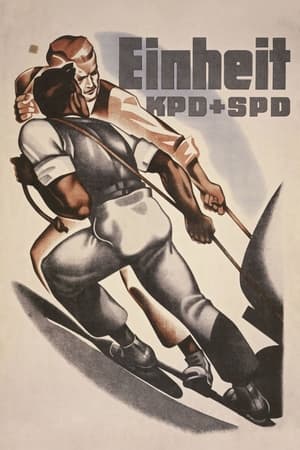 5.0
5.0Unity SPD – KPD(de)
Documentary about the merging of the Communist Party of Germany and the Socialist Unity Party of Germany in the Soviet occupation zone, a merger that would lead to the creation of the Socialist Unity Party that would rule the soon-to-be-created East Germany until 1989.
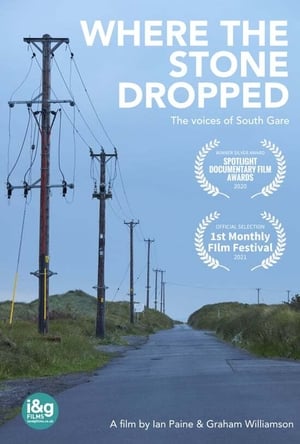 8.0
8.0Where the Stone Dropped(en)
Created in the Victorian era to widen the mouth of the River Tees for shipping, South Gare is a man-made peninsula extending four kilometres into the cold North Sea. Today, the industry it was built for has gone, but the Gare remains as a haven for all sorts of unexpected communities - kite-surfers, photographers, bird-watchers, scuba-divers and the people who simply appreciate its strange, lonely beauty.
 0.0
0.0The Three Failures(en)
A fairy tale about communism, social-democracy, and capitalism. (The sequel to Wandering Marxwards)
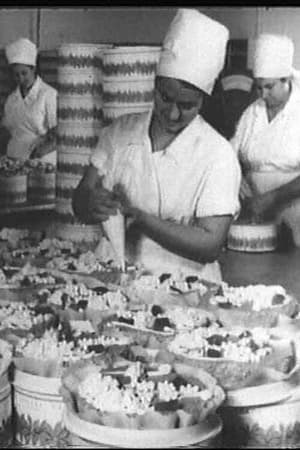 0.0
0.0Charlie Marx and the Chocolate Factory(en)
Charlie Marx and the Chocolate Factory started as an investigation of the link between politics and chocolate, at the Karl Marx Confectionary Factory in Kiev, Ukraine. Since access to the factory was denied, the project had to be re-considered, re-invented or re-enacted. Mostly made of archival footage and re-enacted performances based on the company's website, the film merges what was left of the initial idea with what has been collected and realized instead. It borrows from the genres of video art, 'Man on the street' interview, direct address, corporate film, essay, and music video, without legitimately belonging to any of them. The film unravels as a reflection on its own failure, and yet keeps on investigating what has always been at stake: the shift from public to private property (and from analog to digital technology), dialectics of permanence and change, language as a mirror of ideology, and post-Soviet oligarchy culture.
 0.0
0.0Cadbury at Easter: Secrets of the Chocolate Factory(en)
A behind-the-scenes look at the confectioner that has been crafting Easter eggs since 1875, producing approximately 500 million each year. The program covers the origins of the Easter egg and how George and Richard Cadbury were pivotal in making them a Victorian-era sensation, up to the collaboration with Domino's Pizza to create Creme Egg cookies, a concoction that has stirred up the chocolate and pizza world.
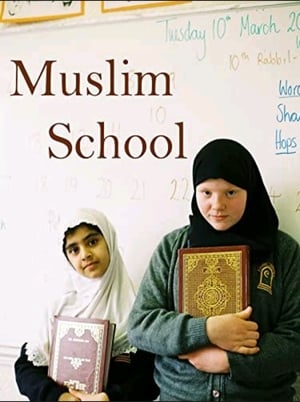 9.0
9.0Muslim School(en)
Zara, 7, has entered Islamia Primary school in Nottingham from a state primary. Aysha, 12, has entered Islamia Secondary, a girls only school, as the only white student. he girls will be taught the standard national curriculum, supplemented by Islamic Studies, Urdu, Arabic, and readings of Islamic Scripture. But how will they find the transition from their previous multi-faith schools?
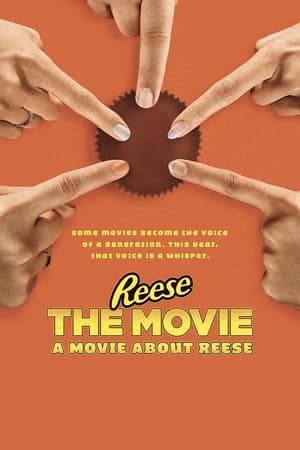 8.0
8.0Reese The Movie: A Movie About Reese(en)
Five of YouTube's top ASMRtists discover the ultimate way to eat REESE Peanut Butter Cups in this weird and wonderful feature film. A sensory experience presented in ASMR audio to give you the chills.
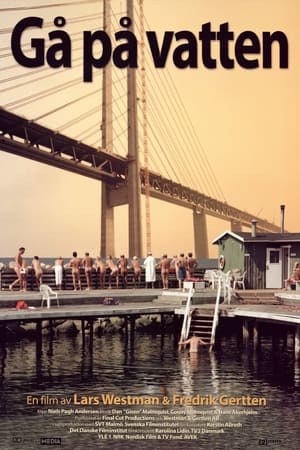 0.0
0.0Walk on water(sv)
An often humorous documentary about the building of the Öresund bridge, connecting Copenhagen in Denmark to Malmö in Sweden. We meet the people who work on production of the bridge, as well as opponents to the idea of such a bridge.
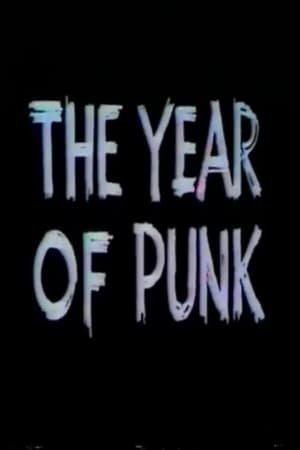 0.0
0.0The Year Of Punk(en)
The summer of the Jubilee in 1977 was mentally dominated by another national anthem - "God Save the Queen" by The Sex Pistols. That same summer was also the summer of punk. Janet Street Porter Reviews The Year Of Punk, Featuring Early Classic Footage Of The Sex Pistols, The Clash, Siouxsie And Others.
 5.4
5.4How the Berlin Worker Lives(de)
This documentary shows how the Berliner workers lived in 1930. The director Slatan Dudow shows through images: a) the workers leaving the factory; b) the raise of the rents; c) the "unpleasant" guest, meaning the justice officer that brings the eviction notice; d) the fight of classes of the houses of capitalists and working classes; e) the parks of the working class; f) the houses of the working class, origin of the tuberculosis and the victims; g) the playground of the working class; h) the swimming pool for the working class, ironically called the "Baltic Sea" of the working class; i) the effects of humidity of basement where a family lives, with one member deaf; j) one working class family having dinner while the capitalist baths his dog; k) the eviction notice received from an unemployed family and their eviction.
 0.0
0.0Jonathan from Australia(et)
The small town locals of Mustjala are the Indians of Estonia - they are ravaged by alcoholism and depression, because they've been ignored by the shiny capitalist dream. But then a German tourist ship boards in Mustjala. Could it be the realization of an old Estonian legend about a white ship coming from another land and bringing joy and prosperity for the local people?
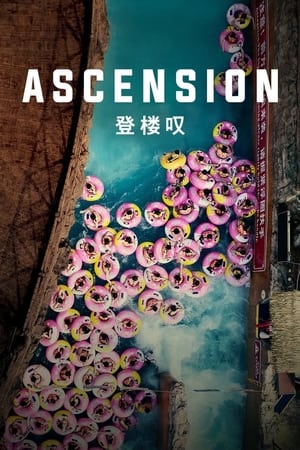 6.8
6.8Ascension(en)
The absorbingly cinematic Ascension explores the pursuit of the “Chinese Dream.” Driven by mesmerizing—and sometimes humorous—imagery, this observational documentary presents a contemporary vision of China that prioritizes productivity and innovation above all.
Beyond Ratings(hi)
Three women share their experience of navigating the app-world in the metro city. The sharings reveal gendered battles as platform workers and the tiresome reality of gig-workers' identities against the absent bosses, masked behind their apps. Filmed in the streets of New Delhi, the protagonists share about their door-to-door gigs, the surveillance at their workplaces and the absence of accountability in the urban landscape.
 0.0
0.0Chocolate Perfection(en)
Michel Roux Jr sets out to discover the secret of chocolate, not just why we're addicted to the sublime and complex foodstuff but it’s rich and varied history. From a sacred drink of Aztec Emperors to the aphrodisiac of choice at the court of Louis XIV in Versailles.
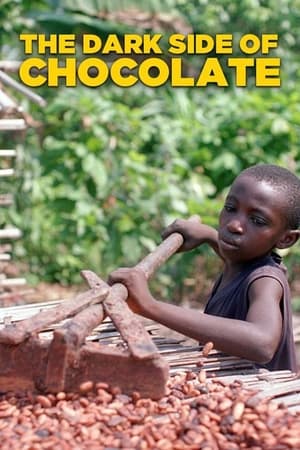 7.0
7.0The Dark Side of Chocolate(en)
A team of journalists investigate how human trafficking and child labor in the Ivory Coast fuels the worldwide chocolate industry. The crew interview both proponents and opponents of these alleged practices, and use hidden camera techniques to delve into the gritty world of cocoa plantations.
American Meth(en)
Actor Val Kilmer narrates this powerful film exploring the methamphetamine epidemic that's ravaged blue-collar America. Putting a human face on the problem, filmmaker Justin Hunt reveals the damage being done by this rural drug of choice, as well as the steps being taken by communities across the nation to wipe out the scourge. From Wyoming to New Mexico, Montana and Oregon, American Meth paints a picture of both devastation and hope.
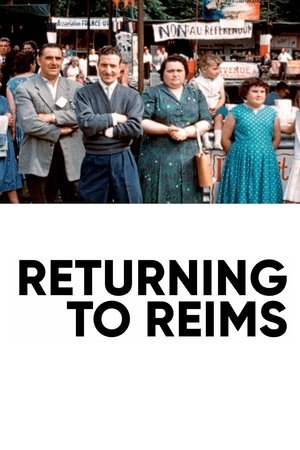 6.3
6.3Returning to Reims(fr)
An intimate and political history of the French working class from the early 1950s to the present day.
 7.0
7.0Workingman's Death(en)
Is heavy manual labour disappearing or is it just becoming invisible? Where can we still find it in the 21st century? Workingman's Death follows the trail of the HEROES in the illegal mines of the Ukraine, sniffs out GHOST among the sulphur workers in Indonesia, finds itself face to face with LIONS at a slaughterhouse in Nigeria, mingles with BROTHERS as they cut a huge oil tanker into pieces in Pakistan, and joins Chinese steel workers in hoping for a glorious FUTURE.
